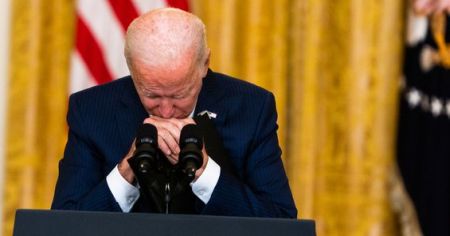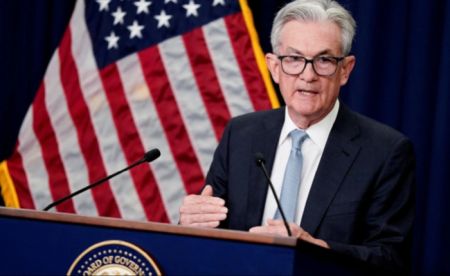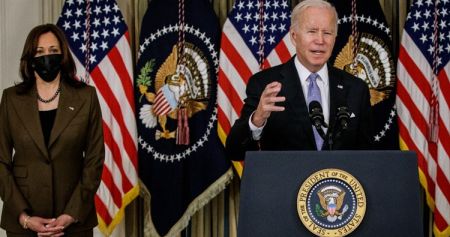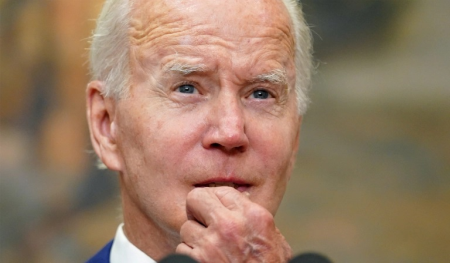30-year fixed-rate mortgage now tops 6%, up from 3.1% this time last year
WASHINGTON, D.C. (Texas Insider Report) — In the aftermath of a soaring inflation report released two weeks ago – showing that June's prices were rising at their fastest rate in over 40 years with inflation reaching its highest level since 1982 – the Federal Reserve Bank announced earlier today it had increased interest rates by another three-quarters of a percentage point, and would continue its aggressive campaign of interest rate hikes through the end of the year. Bank officials also signaled that more rate increases are on the way, stating it "anticipates that ongoing increases... will be appropriate."
The Federal Reserve raised its pivotal short-term interest rate by 0.75% for the second consecutive month in an attempt to curb the escalating rate of inflation, which topped a 9% for the 12-month period ending in June. June’s CPI Report was worse than expected, showing that Consumer Prices were 9.1% higher than the year before.
 The interest rate hike – the largest since 1994 – is designed to raise the cost of borrowing all across the economy in order to reverse the rapid rate of inflation increases which began occuring during the Biden presidency.
The interest rate hike – the largest since 1994 – is designed to raise the cost of borrowing all across the economy in order to reverse the rapid rate of inflation increases which began occuring during the Biden presidency.- Between the lines, the language in the Fed's rate hike announcement indicated that both consumer spending and economic production are softening, which represents the bank's first and most explicit acknowledgement yet that the economy is slowing.
The Fed's tightening of monetary policy, the most rapid in decades, also sent financial markets reeling and increased the risk the United States will fall into a recession.
- Home Loans: The rate for a conventional 30-year fixed-rate mortgage now tops 6%. This time last year: 3.1%.
- Credit Card Debt: The average credit card rate hit 16.7% according to BankRate. Credit card rates, tied closely to the Fed's moves, are expected to keep rising — squeezing consumers who carry a balance.
- Auto Loans: Rising interest rates and increasing prices had already pushed the average monthly car payment to an all-time high of $656 for new vehicles, and $546 for used rides, per Edmunds.
 During a press conference announcing the interest rate increase, Federal Reserve Chairman Jerome Powell told reporters that another "unusually large" rate increase could take place at the bank's next, or in future meetings.
During a press conference announcing the interest rate increase, Federal Reserve Chairman Jerome Powell told reporters that another "unusually large" rate increase could take place at the bank's next, or in future meetings. He admitted the path to a "soft landing" is getting increasingly narrow, and could get narrower still.
As to whether the Fed will continue with steep rate increases, Powell (left,) said:
"These rate hikes have been large, and they've come quickly. And it's likely that their full effect has not been felt by the economy, so there's probably some additional tightening – significant additional tightening – in the pipeline."
Attempting to soften the blow of increased rates, Powell noted that the Fed is taking a "bold" approach to restraining inflation, adding that inflation “can’t go down until it flattens out.”
Attempting to soften the blow of increased rates, Powell noted that the Fed is taking a "bold" approach to restraining inflation, adding that inflation “can’t go down until it flattens out.”
When asked whether he agrees with President Biden’s assessment that the economy is not headed towards a recession – despite GDP being poised to shrink for a 2nd consecutive quarter with the release of Thursday’s economic growth data – Powell said, "We're not trying to have a recession, and we don't think we have to."
Previously, Powell – who was recently sworn into a second term after Biden re-nominated him to the chairman’s post – had said the Federal Reserve would do “whatever it takes” to curb inflation, with the bank signaling more rate hikes were likely to come.
 Additionally, the Biden Administration’s difficulties resolving supply-chain problems have been identified by economists as leading to a scarcity of goods and, thus, inflation.
Additionally, the Biden Administration’s difficulties resolving supply-chain problems have been identified by economists as leading to a scarcity of goods and, thus, inflation.The ongoing shortage of semi-conductor microchips in electronic products, as well as the port blockages (i.e., at the Port of Los Angeles through which flows 37% of U.S. imports,) and most recently a baby formula supply shortage across the nation have prompted public outcry, leading the the Biden White House to try to intervene.
























